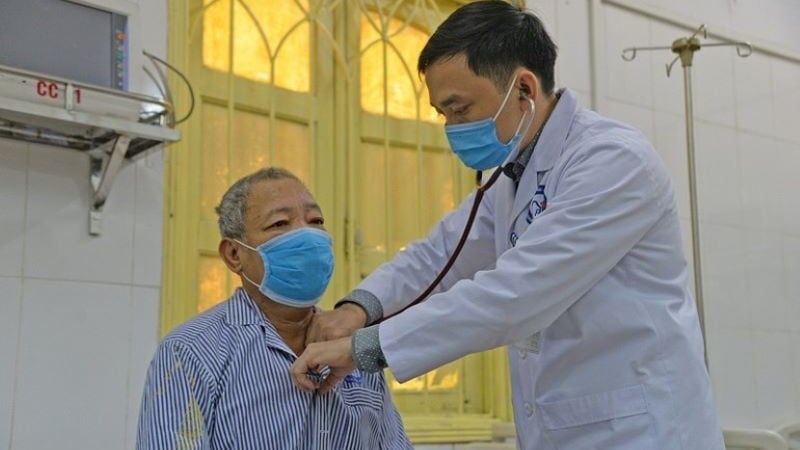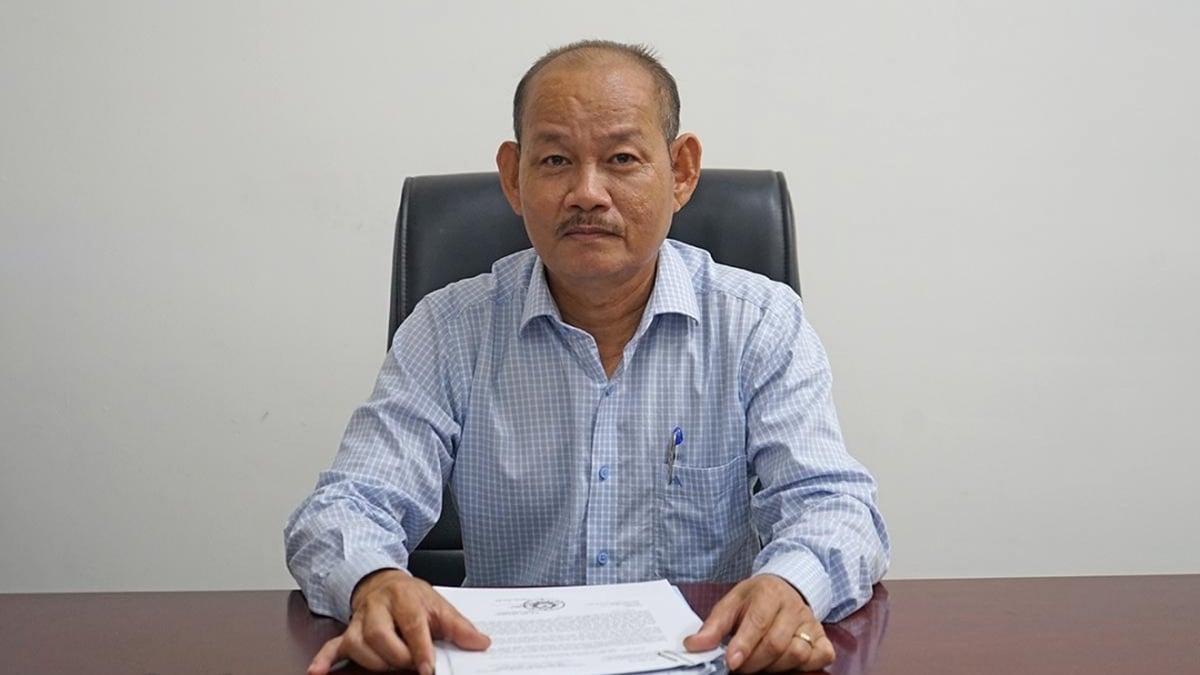
The Intensive Care Unit – Central Endocrinology Hospital has just received and successfully treated a case of complicated septic shock in a patient with a history of severe endocrine and metabolic diseases.
The patient is Mr. VHN, 68 years old, residing in Thai Binh ward, Hung Yen province, hospitalized in a state of reduced consciousness. The patient has a history of type 2 diabetes being treated with insulin, accompanied by chronic gout and a history of pleural effusion.
According to the patient's family, about 6 days before being admitted to the hospital, Mr. VHN had used a drug of unknown origin to treat diabetes. After taking the drug, the patient had a poor appetite and was clearly tired. One day before being admitted to the hospital, Mr. N. showed signs of drowsiness, sweating, and self-measured his blood sugar at home, indicating hypoglycemia (2.7 mmol/l).
Although initially treated at a lower level medical facility , the patient's consciousness continued to deteriorate and he had to be transferred to a central emergency facility.
Upon admission to the Intensive Care Unit – Central Endocrinology Hospital, the patient was in a state of slow contact, rapid pulse, low blood pressure, and reduced blood oxygen saturation SPO2 to only 88%. The patient showed no signs of localized paralysis or stiff neck, and no obvious abnormalities were recorded in other organs.
The patient's imaging results showed diffuse lung lesions: Chest X-ray showed bilateral opacities; chest CT scan detected bilateral lung parenchymal consolidations, bilateral pleural effusions of significant thickness. Echocardiography showed preserved left ventricular systolic function. In addition, abdominal ultrasound showed grade 1 fatty liver, right renal cysts, and left renal stones.
Based on expert consultation, the patient was diagnosed with septic shock-severe pneumonia on the basis of type 2 diabetes, adrenal insufficiency due to drug abuse and chronic gout.
The treatment team quickly implemented a comprehensive regimen including: high-flow oxygen therapy, electrolyte replacement, broad-spectrum antibiotics, vasopressors, and Hydrocortisone to treat adrenal insufficiency and tightly control blood sugar.
Under close coordination between the specialties: Resuscitation, Endocrinology, Respiratory, Nutrition and Clinical Pharmacy, after nearly a week of active treatment, the patient recovered well, fully alert, regular heart rate, stable blood pressure, improved ventilation in both lungs, and blood oxygen index returned to normal levels.
Doctors at the Central Endocrinology Hospital emphasized that this is a typical case showing the great risks when patients arbitrarily use diabetes medication of unknown origin, without a doctor's prescription. This is also an important warning about the serious consequences of drug-induced adrenal insufficiency, especially when combined with underlying diseases such as diabetes and gout.
Doctors recommend that people absolutely do not self-treat endocrine diseases at home. Medication must be prescribed and under the guidance of a specialist. More importantly, patients need to maintain regular check-ups and control underlying diseases well to prevent dangerous, even life-threatening complications.
Source: https://nhandan.vn/su-dung-thuoc-khong-ro-nguon-goc-de-dieu-tri-dai-thao-duong-nguoi-dan-ong-nhap-vien-cap-cuu-post896590.html


































































![[Photo] National Assembly Chairman Tran Thanh Man receives Chairman of Morocco-Vietnam Friendship Association](https://vphoto.vietnam.vn/thumb/402x226/vietnam/resource/IMAGE/2025/7/26/b5fb486562044db9a5e95efb6dc6a263)



































Comment (0)